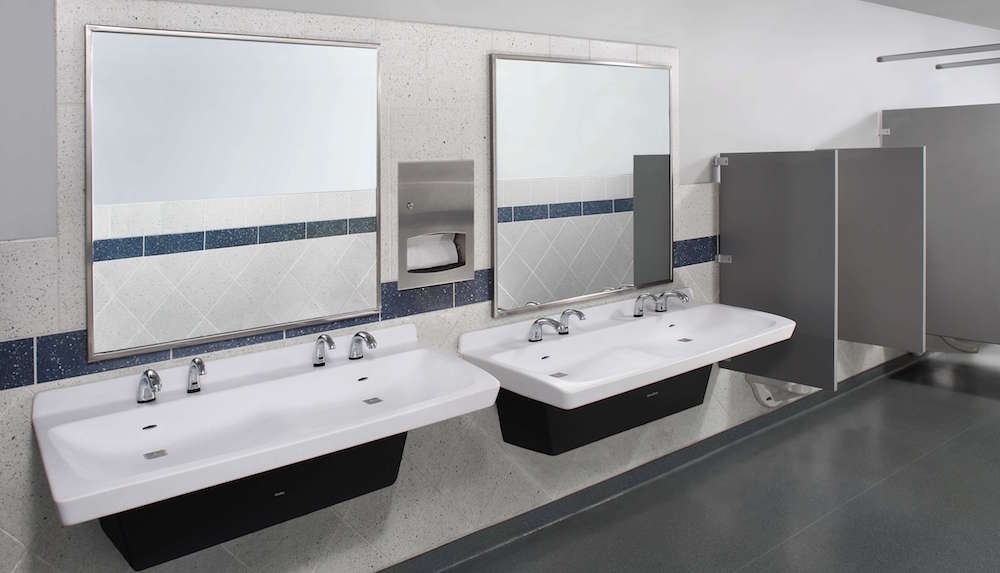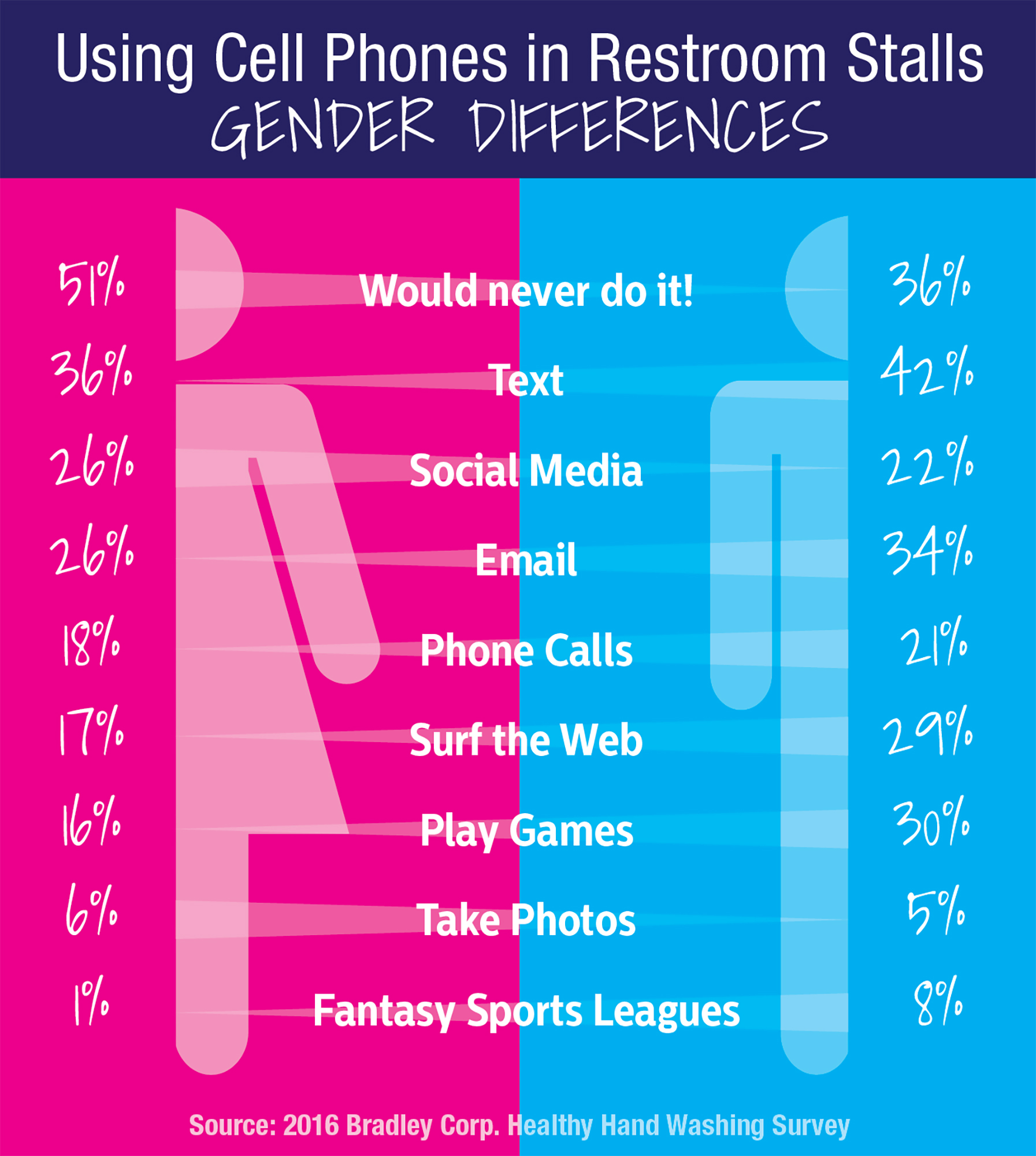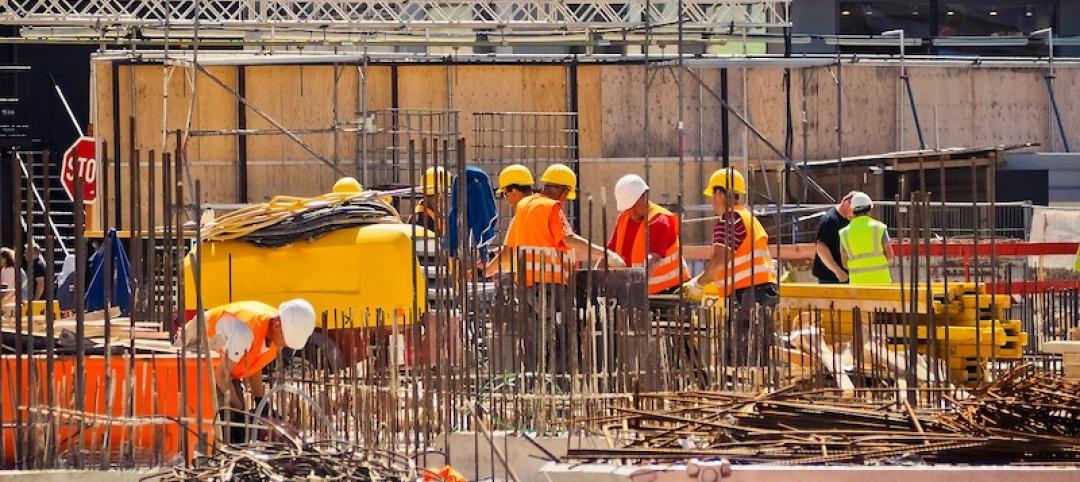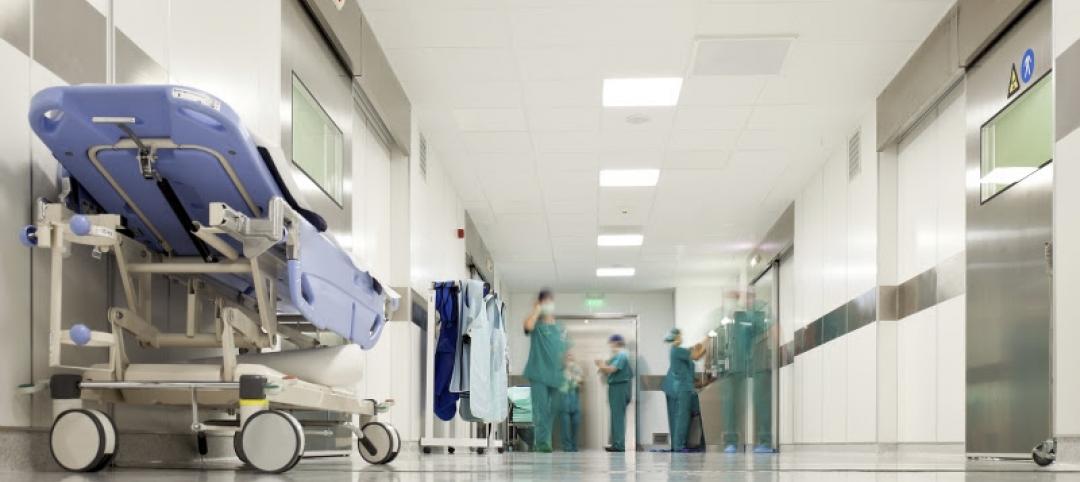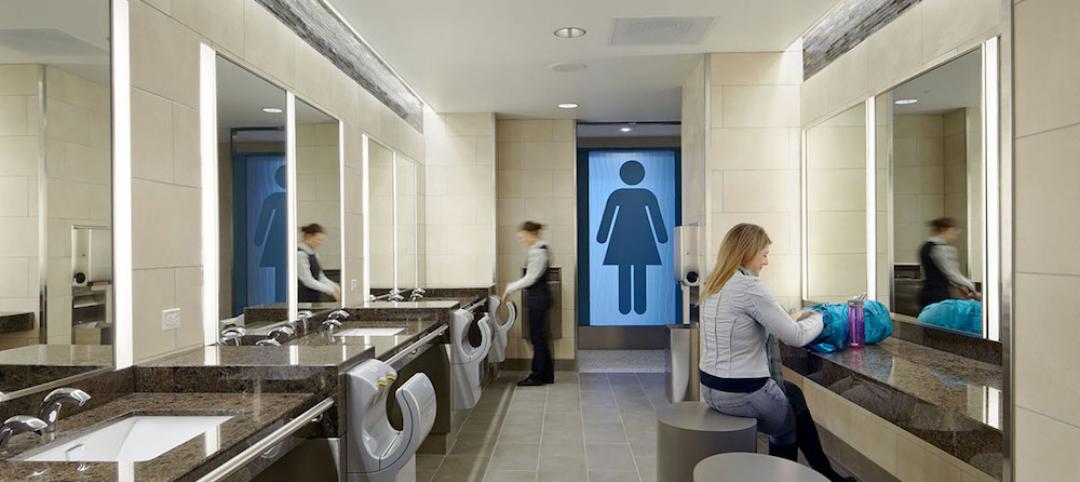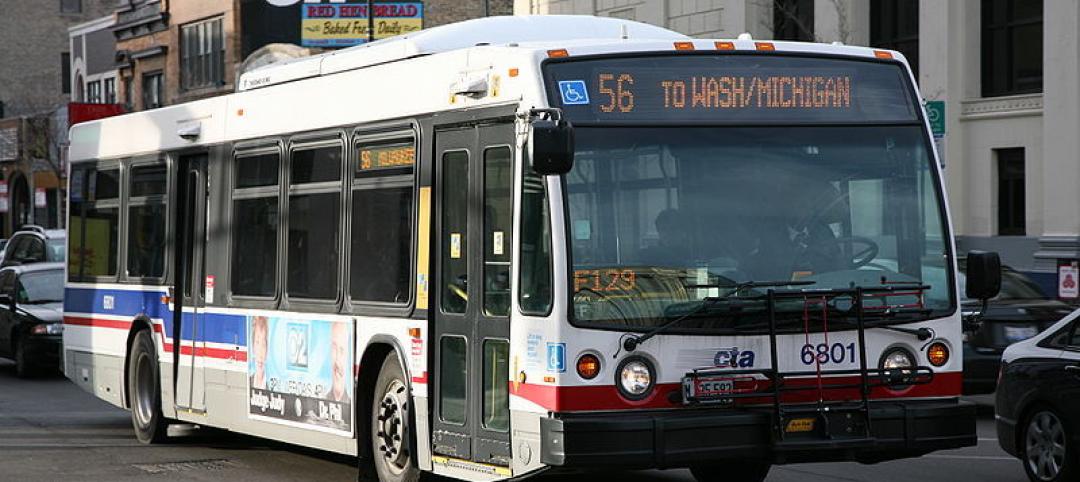The restroom fixture manufacturer Bradley released its 2016 Healthy Hand Washing Survey, which gives some insight into bathroom problems, usage, and possible improvements.
The results come from a national online survey of 1,062 American adults split nearly evenly among men and women. They were asked about their hand washing habits in public restrooms and concerns about germs and sanitation.
Bradley identified 10 trends in public bathrooms:
- Respondents use their cell phones in restroom stalls, using their devices to text, surf the web, and check social media and email. Eight percent of men say they’ve checked their fantasy sports league while in a stall.
- People try to avoid touching surfaces like door handles, stall doors, faucets, sinks, and soap and towel dispensers.
- People make an effort to dodge germs. They operate the toilet flusher with their foot, use a paper towel when touching the restroom door and faucet handles, and open and close doors with their hip.
- The most frustrating restroom situation is empty or jammed toilet paper dispensers. People also dislike partition doors that don’t latch, empty or jammed towel or soap dispensers, and bathrooms that appear dirty.
- Respondents judge businesses based on a restroom’s cleanliness. Most say that a messy restroom indicates poor management and a lack of concern about appearance or customer satisfaction.
- Nearly 70% say they have had an unpleasant experience because of the conditions in a public restroom. The figure is up from 51% in 2012.
- People aren’t as fond of their workplace restrooms anymore. Only half now describe the restrooms at their workplace as excellent or very good, compared to 66% in 2012.
- Almost 80% say they frequently or occasionally see others leave a public restroom without washing their hands. Twenty percent of men disclosed they skip washing because they didn’t feel the need.
- Of those who say they don’t wash their hands, most attribute that to a lack of resources like soap or paper towels, or dirty or broken sinks.
- People would like to see public bathrooms add touchless fixtures and paper towels (even if there are dryers). More frequent cleanings are also a suggestion.
Related Stories
Industry Research | Aug 25, 2016
Building bonds: The role of 'trusted advisor' is earned not acquired
A trusted advisor acts as a guiding partner over the full course of a professional relationship.
Market Data | Aug 16, 2016
Leading economists predict construction industry growth through 2017
The Chief Economists for ABC, AIA, and NAHB all see the construction industry continuing to expand over the next year and a half.
Healthcare Facilities | Aug 9, 2016
Key strategies to reduce healthcare facility costs and maintain operations
The right approach during the planning, design, and construction of a new facility can yield a positive return on investment and lower the overall cost basis for ongoing operations, writes Steve Higgs, Senior Managing Director with CBRE Healthcare.
Laboratories | Aug 8, 2016
The lab of the future: smaller, flexible, tech-enabled, business focused
A new CBRE report emphasizes the importance of collaboration and standardization in lab design.
Industry Research | Aug 5, 2016
47 states experienced improvement in year-over-year construction unemployment rates in June
The drop in the construction unemployment rate from June 2015 extends the uninterrupted monthly sequence of year-over-year rate decreases that started in October 2010, according to Bernard M. Markstein, PhD, President and Chief Economist of Markstein Advisors.
Industry Research | Aug 2, 2016
Nonresidential construction spending declines again in June
On a year-over-year basis, nonresidential construction spending has fallen 1.1 percent, marking the first annual decline since July 2013
Industry Research | Jul 26, 2016
AIA consensus forecast sees construction spending on rise through next year
But several factors could make the industry downshift.
Industry Research | May 11, 2016
Why corporate bathrooms stink and how good design can fix this
Despite their importance, bathrooms are often overlooked when it comes to building design. Gensler's Johnathan Sandler spoke with people in the industry and detailed some of the biggest gripes.
Big Data | May 5, 2016
The Center for Neighborhood Technology has launched the largest source of transit data in the country
AllTransit analyzes the social benefits of good transit service by analyzing data related to health, equity, and economic development.
Industry Research | May 5, 2016
National survey reveals offices aren’t built to benefit employees
A Saint-Gobain and SageGlass Work Environment Survey found insufficient access to daylight, poor air quality, and distracting noise at workplaces as the major issues experienced by employees


